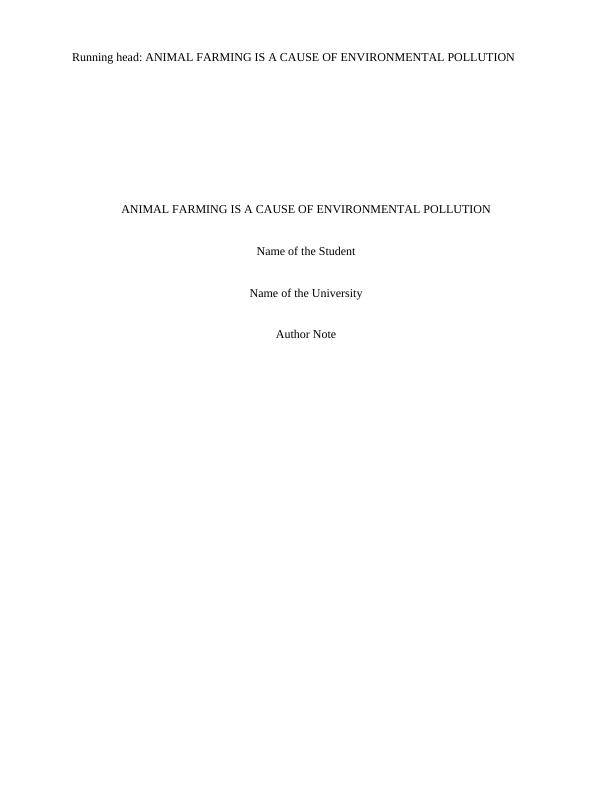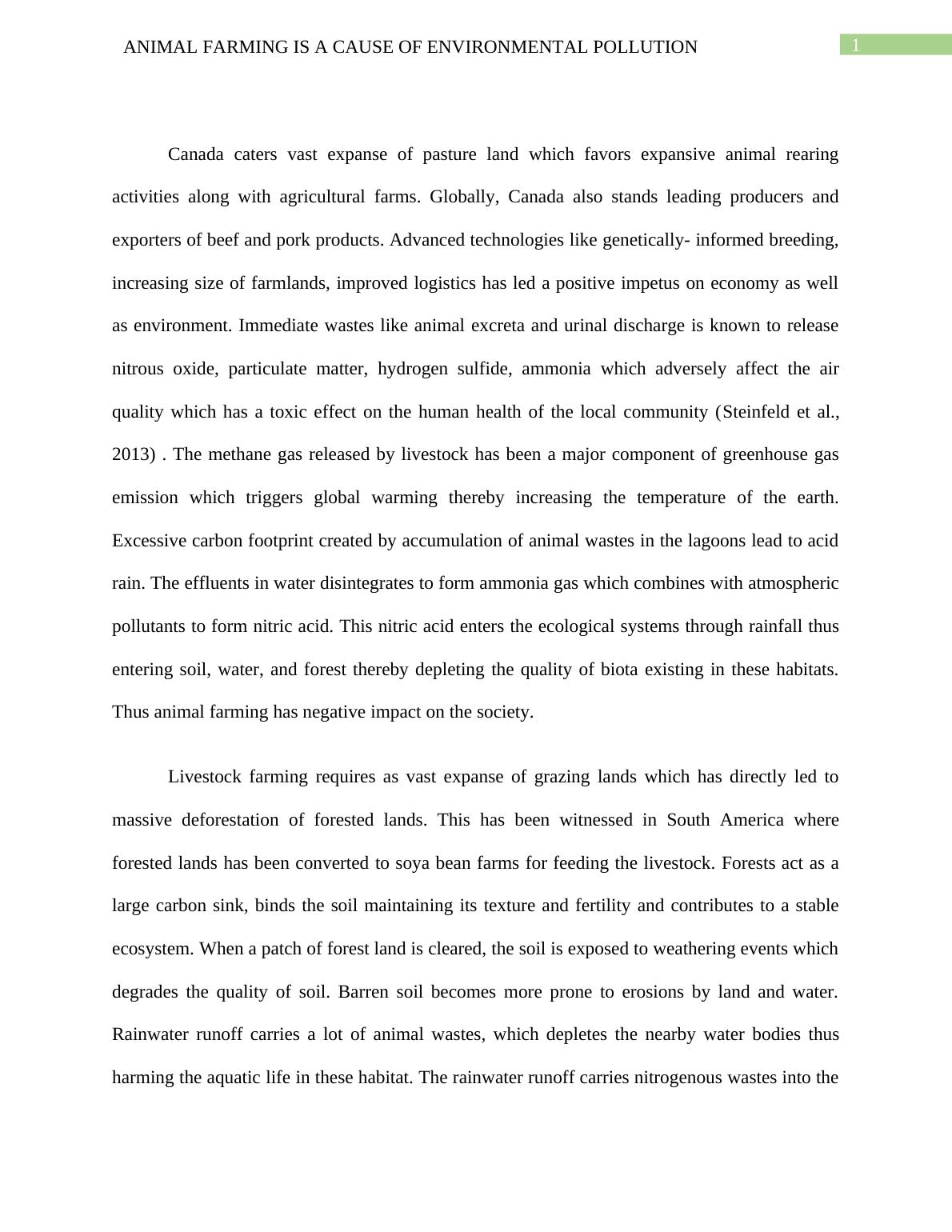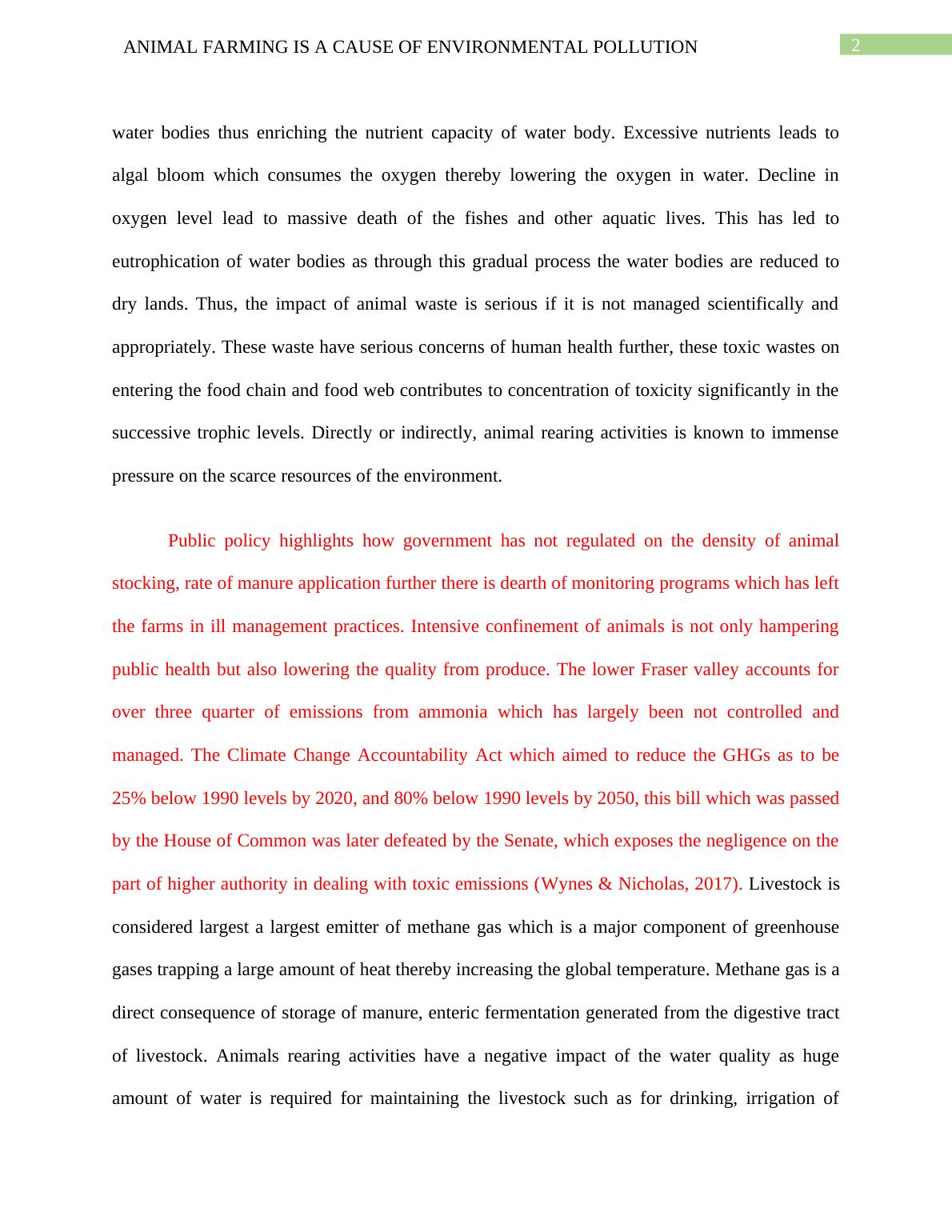Animal Farming as a Cause of Environmental Pollution
6 Pages1487 Words128 Views
Added on 2023-05-28
About This Document
This article discusses the negative impact of animal farming on the environment, including pollution and deforestation. It explores the impact of animal waste on air and water quality, and highlights the need for sustainable practices to combat the adverse effects. The article also suggests potential solutions, such as using methane gas as fuel and adopting eco-friendly waste management practices.
Animal Farming as a Cause of Environmental Pollution
Added on 2023-05-28
ShareRelated Documents
End of preview
Want to access all the pages? Upload your documents or become a member.
Effects of Animal Farming to the Environment
|8
|1531
|295
Water Pollution: Types, Causes and Control Measures
|7
|1653
|155
College reading and writing skills PDF
|7
|1623
|68
Geography | Sustainable Systems | Assignment
|12
|3185
|17
Cause and Effect: Pollution
|4
|704
|497
Meat Consumption and its Impact on the Environment Report 2022
|4
|799
|22



